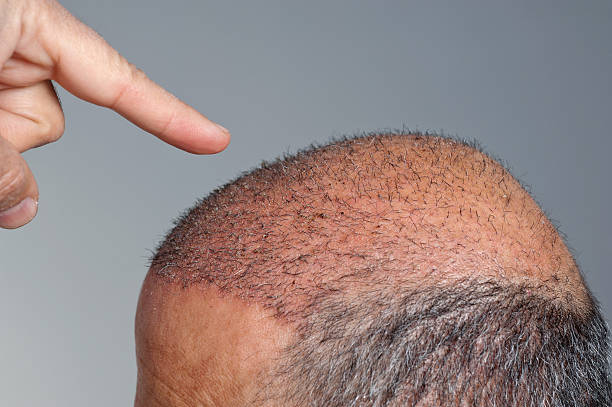Scalp Psoriasis Explained: Symptoms, Causes, and Relief Options
Scalp psoriasis is a chronic skin condition that can cause itching, flaking, and discomfort. In this article, we explore the key symptoms, possible causes, and treatment options that can help manage flare-ups and improve your quality of life without making exaggerated claims.

Scalp psoriasis is a common yet challenging form of psoriasis that specifically affects the scalp. This chronic inflammatory skin condition can range from mild, barely noticeable scaling to severe cases with thick, crusted plaques that extend beyond the hairline. While not contagious, scalp psoriasis can significantly impact quality of life, causing physical discomfort and emotional distress. Understanding its symptoms, causes, and treatment options is essential for effective management and finding relief from this persistent condition.
What Are the Common Symptoms of Scalp Psoriasis?
Scalp psoriasis presents with distinctive symptoms that can vary in severity. The most characteristic sign is the presence of red, inflamed patches covered with silvery-white scales. Unlike simple dandruff, these scales tend to be thicker and more defined. Many people experience intense itching, which can be particularly troublesome and may lead to scratching that worsens the condition. Burning sensations and soreness are also common complaints.
In more severe cases, temporary hair loss may occur, not from the condition itself but from aggressive scratching or harsh treatments. The scales may also crack and bleed, especially when scratched or when attempting to remove them. Some individuals report a tight, uncomfortable feeling on their scalp, as if the skin is being stretched. These symptoms can extend beyond the scalp to the forehead, around the ears, or to the back of the neck.
What Triggers Scalp Psoriasis Flare-Ups?
Understanding the triggers for scalp psoriasis flare-ups is crucial for managing the condition effectively. Stress is one of the most common triggers, with many patients reporting worsening symptoms during periods of high anxiety or emotional distress. Infections, particularly streptococcal throat infections, can trigger the initial onset of psoriasis or cause existing conditions to worsen. This connection highlights the autoimmune nature of the disease.
Environmental factors also play a significant role. Cold, dry weather often exacerbates symptoms, while sunlight and humidity typically provide relief for many sufferers. Certain medications, including lithium, beta-blockers, and antimalarial drugs, can trigger flares or make existing psoriasis worse. Skin injuries, such as cuts, scrapes, or sunburns, may trigger psoriasis at the site of the injury through a phenomenon known as the Koebner response.
Lifestyle factors shouldn’t be overlooked. Alcohol consumption can increase the risk of flare-ups and may reduce treatment effectiveness. Similarly, smoking not only increases the risk of developing psoriasis but can also make existing cases more severe and more difficult to treat. Identifying and minimizing exposure to personal triggers is an essential part of managing scalp psoriasis effectively.
What Are the Most Effective Treatment Options for Scalp Psoriasis?
Treatment for scalp psoriasis typically follows a stepwise approach, beginning with milder options and progressing to more potent therapies if necessary. Topical treatments form the foundation of scalp psoriasis management. Medicated shampoos containing ingredients like salicylic acid help remove scales, while coal tar reduces inflammation and slows skin cell growth. Corticosteroid solutions, foams, or oils reduce inflammation and can be particularly effective for moderate cases.
For more persistent cases, vitamin D analogs like calcipotriene slow skin cell growth and flatten lesions. Topical retinoids, derived from vitamin A, normalize skin cell development and reduce inflammation. These treatments may be used alone or in combination with corticosteroids for enhanced effectiveness. Calcineurin inhibitors, though not FDA-approved specifically for psoriasis, are sometimes prescribed off-label to reduce inflammation without the side effects of steroids.
In severe or resistant cases, systemic treatments may be necessary. Oral medications like methotrexate, cyclosporine, or newer biologic drugs target specific aspects of the immune system involved in psoriasis. Phototherapy, which involves controlled exposure to ultraviolet light, can also be effective but may be challenging to administer to the scalp due to hair coverage. Each treatment option carries its own benefits and potential side effects, making personalized treatment plans essential.
How Can You Manage Scalp Psoriasis Flare-Ups at Home?
Home management strategies play a crucial role in controlling scalp psoriasis symptoms between professional treatments. Gentle hair care is fundamental—using lukewarm water instead of hot water can prevent irritation, while gentle shampooing techniques help avoid traumatizing the scalp. Over-the-counter medicated shampoos containing ingredients like salicylic acid, coal tar, or zinc pyrithione can help manage mild symptoms when used regularly.
Moisturizing the scalp is essential for reducing scaling and discomfort. Natural oils like coconut oil or olive oil can be applied to the scalp before shampooing to help soften and remove scales. Some people find relief by applying a moisturizing treatment overnight under a shower cap. Stress management techniques such as meditation, yoga, or regular exercise can help prevent stress-triggered flare-ups.
Dietary modifications may benefit some individuals, though scientific evidence varies. Some patients report improvement when reducing inflammatory foods like processed foods, dairy, and gluten, while increasing consumption of anti-inflammatory foods rich in omega-3 fatty acids. Staying well-hydrated and limiting alcohol consumption can also support overall skin health and potentially reduce flare-up frequency and severity.
Which Scalp Psoriasis Treatments Are Most Commonly Prescribed by Dermatologists?
Dermatologists typically have a preferred arsenal of treatments they prescribe based on the severity and characteristics of each patient’s scalp psoriasis. For mild to moderate cases, prescription-strength topical corticosteroids remain the most commonly prescribed first-line treatment. These anti-inflammatory medications come in various potencies and formulations specifically designed for the scalp, including solutions, foams, and oils that can penetrate through hair to reach affected skin.
For patients who don’t respond adequately to corticosteroids alone, combination therapies are frequently prescribed. These often pair a corticosteroid with a vitamin D analog like calcipotriene (Dovonex, Sorilux) or a retinoid such as tazarotene (Tazorac). The synergistic effect of these combinations often provides better results than either medication used alone.
| Treatment Type | Common Medications | Typical Usage |
|---|---|---|
| Topical Corticosteroids | Clobetasol (Clobex), Fluocinonide | Applied 1-2 times daily for 2-4 weeks |
| Vitamin D Analogs | Calcipotriene (Dovonex, Sorilux) | Applied 1-2 times daily, often with a steroid |
| Topical Retinoids | Tazarotene (Tazorac) | Applied once daily, usually evenings |
| Systemic Medications | Methotrexate, Cyclosporine | Weekly or daily oral medication for severe cases |
| Biologics | Adalimumab (Humira), Etanercept (Enbrel) | Self-injected weekly or bi-weekly |
Prices, rates, or cost estimates mentioned in this article are based on the latest available information but may change over time. Independent research is advised before making financial decisions.
For more severe or resistant cases, dermatologists may prescribe systemic treatments. Traditional oral medications like methotrexate or cyclosporine have been used for decades, while newer biologic drugs that target specific immune pathways offer promising results with fewer side effects for many patients. These biologics, including tumor necrosis factor-alpha (TNF-alpha) inhibitors, interleukin-17 inhibitors, and interleukin-23 inhibitors, have revolutionized the treatment of severe psoriasis, including scalp involvement.
Scalp psoriasis, while challenging to manage, has numerous effective treatment options available today. The key to successful management lies in understanding the condition’s symptoms and triggers, working closely with healthcare providers to find the right treatment approach, and implementing consistent home care strategies. With proper treatment and management, most people with scalp psoriasis can achieve significant improvement in their symptoms and quality of life. As research continues to advance our understanding of psoriasis, new and more targeted therapies continue to emerge, offering hope for even better outcomes in the future.
This article is for informational purposes only and should not be considered medical advice. Please consult a qualified healthcare professional for personalized guidance and treatment.




